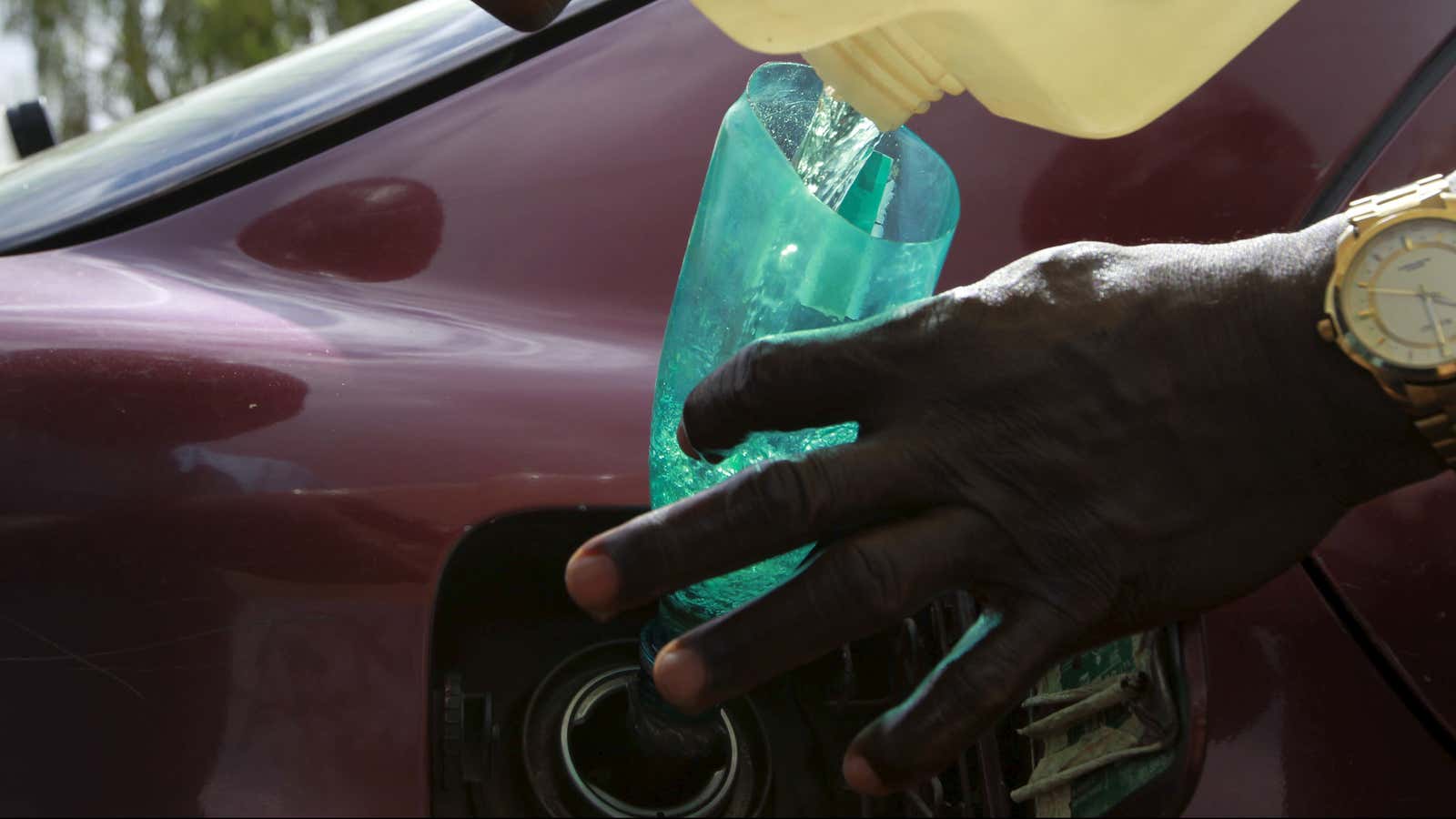The last 18 months have been damaging for Nigeria’s economy. Already battered by a drop in the price of oil—its main export and source of earnings—the country has also seen its currency, the naira, lose almost half of its value against the dollar. Nigeria’s foreign cash reserves sharply declined as the country—largely dependent on imports from refined petroleum to toothpicks—was spending quicker than it was earning.
To buck the trend, the country fixed its exchange rate at around 200 naira to the dollar rather than allow its currency to devalue to around 320 naira versus the dollar—this is where the naira trades on parallel markets. To keep the value fixed the Central Bank of Nigeria has to limit access to dollars to help conserve what’s left of the reserves. The impact of all this on the average Nigerian has been harsh. Major cities like Lagos and Abuja are clogged up by snaking lines of cars at gas stations caused by a shortage of fuel. The irony of Africa’s biggest oil exporter being short on fuel is not lost on its citizens who resort to buying unsafe black market supplies.
Despite drilling vast quantities of crude oil, Nigeria’s has allowed its local refineries to fall into disrepair. This means it depends on imports for local use. With the state oil company, NNPC, unable to cater to imports on its own, it enlists independent marketers who import refined petroleum and distribute to the gas stations across the country. But with the government maintaining a choke-hold on the country’s official exchange rate, independent importers of fuel, whose import allocations account for 58% of the country’s supplies, have complained about not being able to access dollars at the favorable government rate. As a result, the ability to import refined fuel by the marketers has been hobbled.
To make up the deficit, NNPC has upped its fuel importation quota but hasn’t yet been able to make up the for the shortfall.
Nigeria’s fuel shortage is having a drastic effect on an already faltering economy. Some businesses are now closing earlier in the day to ration their fuel. Inevitably, the economy is starting to crawl. This is similar to last May when media, banks and telecoms firms were forced to shut down operations.
“The economy is already slowing down. If marketers cannot import and circulate fuel soon, then the situation could get worse,” Cheta Nwanze, a researcher at Lagos-based SBM Intel says. “As it stands, the NNPC is burdened with servicing national demand and with its inefficient processes, that is an impossible ask.”
The offshoot of the fuel shortage has been harsh on Nigerians. Food prices are shooting up and transportation costs have nearly doubled. Michael Idowu, a cab driver, says he has been forced to sit out business days. “I lose money everyday when I don’t drive because I can’t buy fuel. The queues are crazy and the only way to get fuel is to buy on the black market at four times the official price—it makes no sense.”
